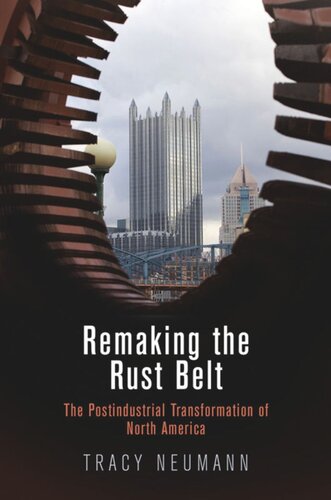

Most ebook files are in PDF format, so you can easily read them using various software such as Foxit Reader or directly on the Google Chrome browser.
Some ebook files are released by publishers in other formats such as .awz, .mobi, .epub, .fb2, etc. You may need to install specific software to read these formats on mobile/PC, such as Calibre.
Please read the tutorial at this link: https://ebookbell.com/faq
We offer FREE conversion to the popular formats you request; however, this may take some time. Therefore, right after payment, please email us, and we will try to provide the service as quickly as possible.
For some exceptional file formats or broken links (if any), please refrain from opening any disputes. Instead, email us first, and we will try to assist within a maximum of 6 hours.
EbookBell Team

4.0
6 reviewsRemaking the Rust Belt tells the story of how local leaders throughout the Rust Belt adapted internationally circulating ideas about postindustrial redevelopment to create the jobs and amenities they believed would attract middle-class professionals, but in so doing widened and deepened economic inequality among urban residents.
Remaking the Rust Belt tells the story of how local leaders throughout the Rust Belt adapted internationally circulating ideas about postindustrial redevelopment to create the jobs and amenities they believed would attract middle-class professionals, but in so doing widened and deepened economic inequality among urban residents.